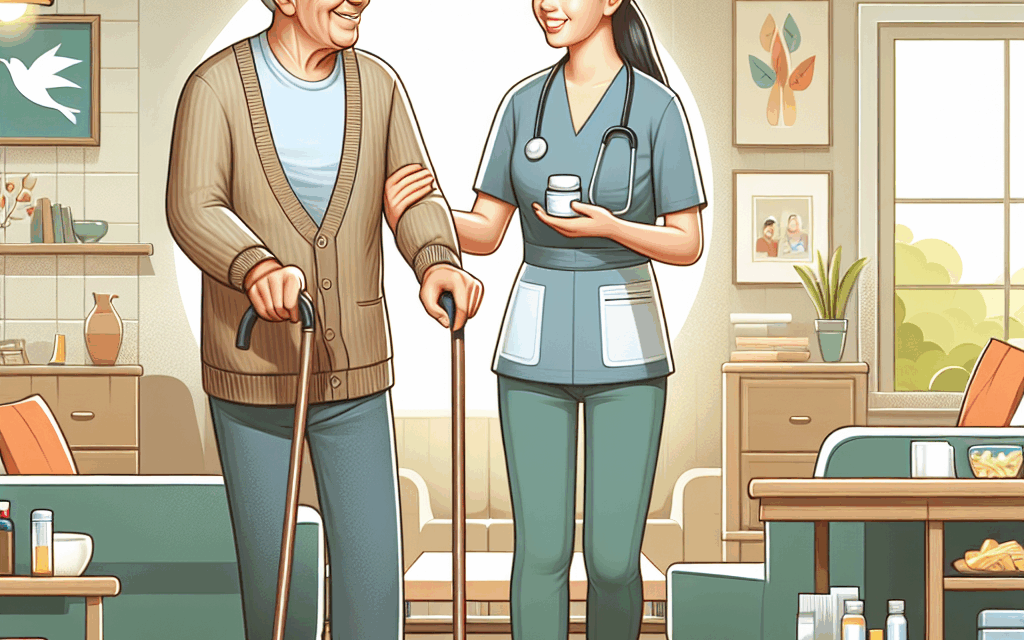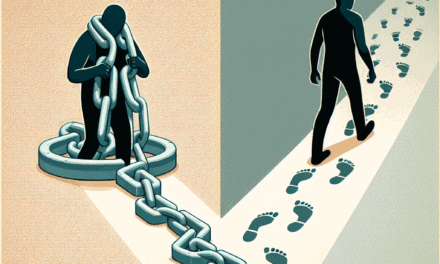Empowering Independence: The Impact of Personalized Home Care for Seniors
As the global population ages, the need for effective and compassionate care for seniors has never been more pressing. Personalized home care has emerged as a vital solution, allowing older adults to maintain their independence while receiving the support they need. This article explores the multifaceted impact of personalized home care on seniors, focusing on five key areas: enhancing quality of life, promoting physical health, supporting mental well-being, fostering social connections, and ensuring safety and security.
Enhancing Quality of Life
Quality of life is a subjective measure that encompasses various aspects of an individual’s experience, including physical health, emotional well-being, and social engagement. For seniors, personalized home care can significantly enhance quality of life in several ways.
One of the primary benefits of personalized home care is the ability to tailor services to meet the unique needs and preferences of each individual. Care plans can be customized based on the senior’s health conditions, daily routines, and personal interests. This level of personalization ensures that seniors receive care that aligns with their lifestyles, promoting a sense of autonomy and dignity.
- Individualized Care Plans: Home care agencies work closely with seniors and their families to develop care plans that reflect their specific needs. This may include assistance with daily activities such as bathing, dressing, and meal preparation, as well as support for managing chronic conditions.
- Fostering Independence: Personalized home care empowers seniors to maintain their independence by allowing them to stay in their own homes. This familiar environment can lead to increased comfort and satisfaction, as seniors are surrounded by their belongings and memories.
- Engagement in Activities: Caregivers can encourage seniors to participate in activities they enjoy, whether it’s gardening, reading, or engaging in hobbies. This engagement can lead to a more fulfilling life and a greater sense of purpose.
Research supports the notion that personalized home care can lead to improved quality of life for seniors. A study published in the Journal of Aging Research found that seniors who received personalized care reported higher levels of satisfaction and well-being compared to those who did not. The ability to engage in meaningful activities and maintain independence was a significant factor in this increased satisfaction.
Promoting Physical Health
Physical health is a critical component of overall well-being, especially for seniors who may face various health challenges. Personalized home care plays a vital role in promoting physical health through tailored support and interventions.
One of the key aspects of personalized home care is medication management. Many seniors take multiple medications, which can lead to confusion and potential health risks if not managed properly. Caregivers can assist with medication reminders, ensuring that seniors take their medications as prescribed. This support can help prevent adverse drug interactions and hospitalizations.
- Regular Health Monitoring: Caregivers can monitor vital signs, such as blood pressure and heart rate, and report any concerning changes to healthcare providers. This proactive approach can lead to early intervention and better health outcomes.
- Encouraging Physical Activity: Personalized home care can include physical therapy or exercise programs tailored to the senior’s abilities. Regular physical activity is essential for maintaining mobility, strength, and overall health.
- Nutrition and Meal Preparation: Proper nutrition is crucial for seniors, and caregivers can assist with meal planning and preparation. By ensuring that seniors receive balanced meals, caregivers can help manage chronic conditions such as diabetes and heart disease.
A study conducted by the National Institute on Aging found that seniors who received personalized home care experienced fewer hospitalizations and emergency room visits due to better management of their health conditions. This not only improves their physical health but also reduces healthcare costs for families and the healthcare system.
Supporting Mental Well-Being
Mental health is an often-overlooked aspect of senior care, yet it is equally important as physical health. Personalized home care can provide essential support for mental well-being, helping seniors cope with the challenges of aging.
Isolation and loneliness are common issues faced by seniors, particularly those who live alone. Personalized home care can help combat these feelings by providing companionship and social interaction. Caregivers can engage seniors in conversation, play games, or participate in activities together, fostering a sense of connection and belonging.
- Emotional Support: Caregivers can offer emotional support by listening to seniors’ concerns and providing reassurance. This support can be invaluable for seniors dealing with grief, loss, or anxiety about their health.
- Cognitive Stimulation: Personalized home care can include activities that promote cognitive engagement, such as puzzles, reading, or memory exercises. These activities can help keep the mind sharp and reduce the risk of cognitive decline.
- Access to Mental Health Resources: Caregivers can assist seniors in accessing mental health resources, such as counseling or support groups. This access can be crucial for seniors who may be struggling with depression or anxiety.
A study published in the American Journal of Geriatric Psychiatry found that seniors who received personalized home care reported lower levels of depression and anxiety compared to those who did not receive such support. The companionship and emotional support provided by caregivers were significant factors in improving mental well-being.
Fostering Social Connections
Social connections are vital for maintaining mental and emotional health, especially for seniors. Personalized home care can play a crucial role in fostering these connections, helping seniors stay engaged with their communities and loved ones.
Caregivers can facilitate social interactions by accompanying seniors to social events, family gatherings, or community activities. This support can help seniors maintain relationships with family and friends, reducing feelings of isolation and loneliness.
- Community Engagement: Personalized home care can include assistance with transportation to community events, such as senior centers, religious services, or recreational activities. This engagement can provide seniors with a sense of purpose and belonging.
- Technology Support: Many seniors may struggle with technology, which can hinder their ability to connect with loved ones. Caregivers can assist seniors in using smartphones, tablets, or computers to communicate with family and friends through video calls or social media.
- Encouraging Family Involvement: Caregivers can help facilitate communication between seniors and their families, encouraging regular check-ins and visits. This involvement can strengthen family bonds and provide seniors with a support network.
A survey conducted by the AARP found that seniors who engaged in social activities reported higher levels of happiness and life satisfaction. Personalized home care can be a key factor in helping seniors maintain these important social connections.
Ensuring Safety and Security
Safety and security are paramount concerns for seniors, particularly those who may be at risk of falls or other accidents. Personalized home care can provide essential support in ensuring a safe living environment.
Caregivers can assist with home modifications to reduce hazards, such as removing tripping hazards, installing grab bars, and ensuring adequate lighting. These modifications can significantly reduce the risk of falls, which are a leading cause of injury among seniors.
- Emergency Preparedness: Caregivers can help seniors develop emergency plans, including how to respond to medical emergencies or natural disasters. This preparedness can provide peace of mind for both seniors and their families.
- Monitoring for Changes: Caregivers can observe changes in seniors’ physical or cognitive abilities and report any concerns to family members or healthcare providers. This proactive approach can lead to timely interventions and prevent potential crises.
- 24/7 Support: Many personalized home care services offer around-the-clock support, ensuring that seniors have access to assistance whenever they need it. This availability can be crucial for seniors who may experience sudden health issues or emergencies.
A report from the Centers for Disease Control and Prevention (CDC) highlights that falls among seniors can lead to serious injuries and even death. Personalized home care can play a significant role in reducing these risks, ultimately enhancing seniors’ safety and security in their own homes.
Conclusion
Personalized home care is a powerful tool for empowering independence among seniors. By enhancing quality of life, promoting physical health, supporting mental well-being, fostering social connections, and ensuring safety and security, personalized home care provides a comprehensive approach to senior care.
The benefits of personalized home care extend beyond the individual; they also positively impact families and the healthcare system as a whole. By allowing seniors to age in place, personalized home care can reduce the burden on hospitals and nursing homes, leading to more sustainable healthcare solutions.
As we continue to navigate the challenges of an aging population, it is essential to recognize the value of personalized home care in promoting independence and improving the overall quality of life for seniors. By investing in personalized care solutions, we can create a more compassionate and supportive environment for our aging loved ones.





